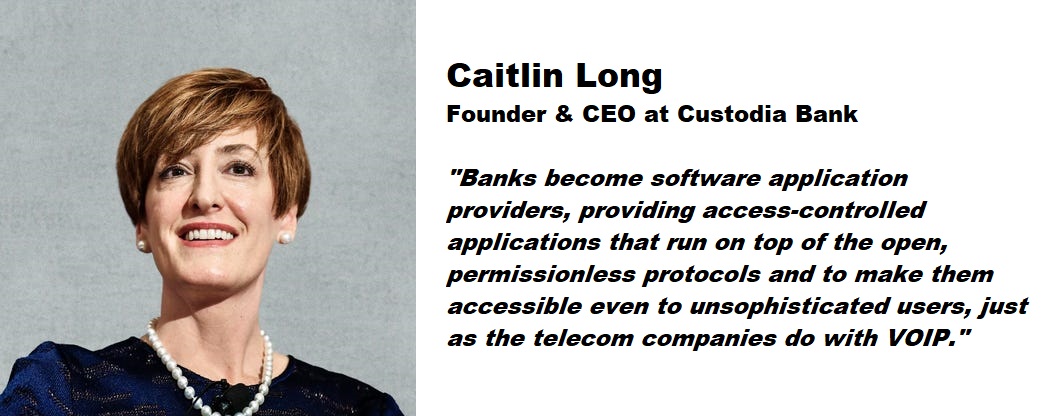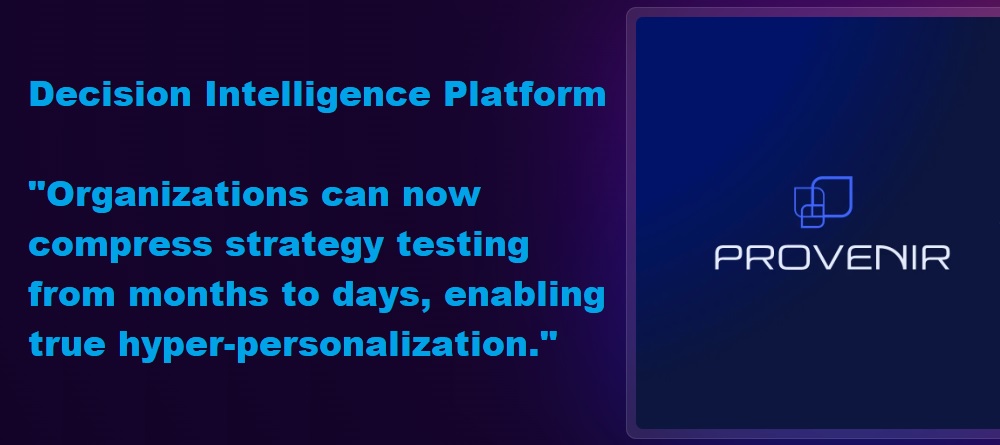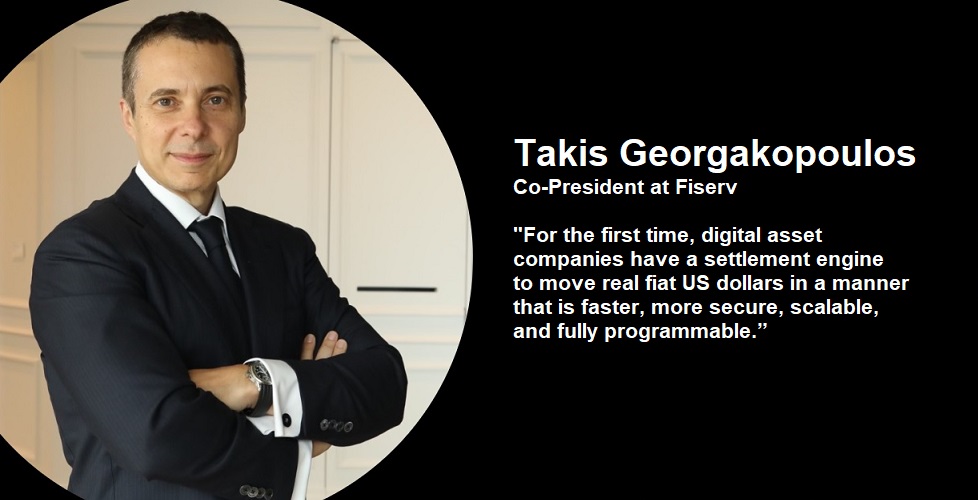Banks are about to face the same tsunami that hit telecom twenty years ago

an article written by Caitlin Long, Founder & CEO at Custodia Bank
I fear global bank regulators are about to make a decision that will unintentionally “obsolete” the banks, by prohibiting a coming tech pivot. Making this mistake would guarantee that the tech industry continues going around the banks, right as internet-native payment technologies are starting to scale.
The telecom sector offers a cautionary tale: When Voice-Over-Internet-Protocol (VOIP) was invented in 1995, most people disparaged it as a technology that couldn’t scale and wasn’t a threat to the telecom giants. Then, circa 2003, the technology to scale VOIP arrived – broadband – and within a flash, most of the telecom industry’s copper-wire networks became obsolete. Useless relics.
Bitcoin is a “Money Over Internet Protocol,” as is Ethereum, potentially. Just as VOIP moves voice data around the internet natively, Bitcoin and Ethereum move value data around the internet natively. Most people disparage Bitcoin, Ethereum, et al. as protocols that can’t scale and can’t possibly threaten the incumbent financial industry, just as they denigrated VOIP. But the scaling technology is now here – it’s called the Lightning Network, which is a Bitcoin layer 2 protocol. Its throughput capacity roughly equals that of Visa, and payments made over Lightning cost virtually zero. There are other scaling technologies, too. If I’m right and scaling technologies for internet-native money protocols have arrived, then many legacy systems operating in the financial system today will be obsolete within a handful of years.
As CEO of a new breed of bank – a dada-bank (“dollar and digital asset bank,” defined as a depository institution authorized to handle both and pronounced like “databank”) – my company lives with the problems inherent in the banking industry’s antiquated legacy systems every day. Culturally, banks have a history of building complex, “walled garden” IT systems. Fintechs sprang up in recent years to provide efficient front-ends that act as “middleware” between antiquated back-end systems and the user experience demanded by customers. Culturally, fintechs build the opposite of banks’ IT systems – fintechs generally build their systems to be as open and “low-walled” as possible to create network effects. Had banks done this, fintechs wouldn’t need to exist! But, until “Money Over Internet Protocols” came along, banks still had a role because fintechs still needed to partner with a legacy bank to settle their customers’ US dollar payments.
“Money Over Internet Protocols” at scale are truly a threat to traditional banking because they enable money to move outside the traditional, antiquated payment rails. To date, the US banking industry has lost roughly $600 billion, or 3% of its deposit base, to the crypto industry – and that happened before the “Money Over Internet Protocols” scaled! Despite all the legal, regulatory, accounting and tax problems faced by their products, and all the criminals and fraudsters running rampant (who should be in jail), the tech industry has proven its ability to go around the banks.
It will take Lightning a few years to lay down that proverbial broadband (scaling) infrastructure before the “Money Over Internet Protocols” hit their tipping point at scale. But make no mistake, it’s happening. The proverbial undersea cables that scaled VOIP are being laid before our very eyes.
Read the full article here
Caitlin Long about herself
I’m a 22-year Wall Street veteran who has been active in bitcoin since 2012, and whose passion is a fair and stable financial system. I’m also founder and CEO of Custodia Bank, a chartered US bank specializing in digital assets that plans to open for business soon. I saw inaccuracies in Wall Street’s ledger systems while running Morgan Stanley’s pension solutions business (2007-2016) and jumped to blockchain to help fix these problems. Before that I worked at Credit Suisse (1997-2007) and Salomon Brothers (1994-1997). In 2018-19 I volunteered in my native state of Wyoming to enact a series of enabling blockchain laws, and am a gubernatorial appointee (non-voting) to the Wyoming Blockchain Select Committee. I hold degrees from Harvard Law School (JD, 1994), the Kennedy School of Government (MPP, 1994) and the University of Wyoming (BA, 1990).
Dariusz Mazurkiewicz – CEO at BLIK Polish Payment Standard
Banking 4.0 – „how was the experience for you”
„To be honest I think that Sinaia, your conference, is much better then Davos.”
Many more interesting quotes in the video below:










